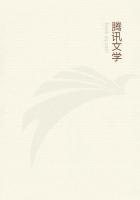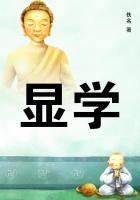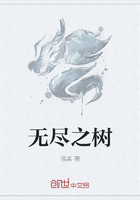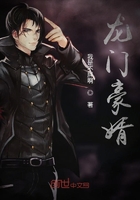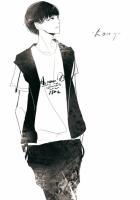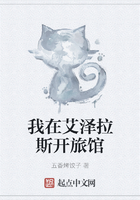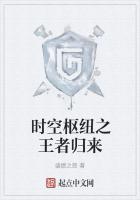Outside the cave we halted,feeling rather foolish.
"I am going back,"said Sir Henry."Why?"asked Good."Because it has struck me that -what we saw -may be my brother."This was a new idea,and we reentered the cave to put it to the proof,After the bright light outside our eyes,weak as they were with stating at the snow,could not for a while pierce the gloom of the cave.
Presently,however,we grew accustomed to the semi-darkness,and advanced on to the dead form.
Sir Henry knelt down and peered into its face.
"Thank God,"he said,with a sigh of relief,"it is not my brother."Then I went and looked.The corpse was that of a tall man in middle life,with aquiline features,grizzled hair,and a long black mustache.
The skin was perfectly yellow,and stretched tightly over the bones.Its clothing,with the exception of what seemed to be the remains of a pair of woollen hose,had been removed,leaving the skeleton-like frame naked.
Round the neck hung a yellow ivory crucifix.The corpse was frozen perfectly stiff.
"Who on earth can it be?"said I.
"Can't you guess?"asked Good.
I shook my head.
"Why,the old don,Joséda Silvestra,of course -who else?""Impossible,"I gasped,"he died three hundred years ago.""And what is there to prevent his lasting for three thousand years in this atmosphere I should like to know?"asked Good."If only the air is cold enough flesh and blood will keep as fresh as New Zealand mutton forever,and Heaven knows it is cold enough here.The sun never gets in here;no animal comes here to tear or destroy.No doubt his slave,of whom he speaks on the map,took off his clothes and left him.He could not have buried him alone.Look here,"he went.on,stooping down and picking up a queer-shaped bone scraped at the end into a sharp point,"here is the `cleft-bone'that he used to draw the map with."We gazed astonished for a moment,forgetting our own miseries in the extraordinary and,as it seemed to us,semi-miraculous sight.
"Ay,"said "Sir Henry,"and here is where he got his ink from,"and he pointed to a small wound on the dead man's left arm."Did ever man see such a thing before?"There was no longer any doubt about the matter,which I confess,for my own part,perfectly appalled me.There he sat,the dead man,whose directions,written some ten generations ago,bad led us to this spot.
There in my own hand was the rude pen with which he had written them,and there round his neck was the crucifix his dying lips had kissed.Gazing at him my imagination could reconstruct the whole scene:the traveller dying of cold and starvation,and yet striving to convey the great secret he had discovered to the world;the awful loneliness of his death,of which the evidence sat before us.It even seemed to me that I could trace in his strongly-marked features a likeness to those of my poor friend Silvestre,his descendant,who had died twenty years ago in my arms,but perhaps that was fancy.At any rate,there he sat,a sad memento of the fate that so often overtakes those who would penetrate into the unknown;and there probably he will still sit,crowned with the dread majesty of death,for centuries yet unborn,to startle the eyes of wanderers like ourselves,if any such should ever come again to invade his loneliness.The thing overpowered us,already nearly done to death as we were with cold and hunger.
"Let us go,"said Sir Henry,in a low voice;"stay,we will give him a companion,"and,lifting up the dead body of the Hottentot Ventv?gel,he placed it near that of the old don.Then he stooped down and with a jerk broke the rotten string of the crucifix round his neck,for his fingers were too cold to attempt to unfasten it.I believe that he still has it.
I took the pen,and it is before me as I write -sometimes I sign my name with it.
Then,leaving those two,the proud white man of a past age and the poor Hottentot,to keep their eternal vigil in the midst of the eternal snows,we crept out of the cave into the welcome sunshine and resumed our path,wondering in our hearts how many hours it would be before we were even as they are.
When we had gone about half a mile we came to the edge of the plateau,for the nipple of the mountain did not rise out of its exact centre,though from the desert side it seemed to do so.What lay below us we could not see,for the landscape was wreathed in billows of morning mist.Presently,however,the higher layers of mist cleared a little,and revealed,some five hundred yards beneath us,at the end of a long slope of snow,a patch of green grass,through which a stream was running.Nor was this all.By the stream,basking in the morning sun,stood and lay a group of from ten to fifteen large antelopes at that distance we could not see what they were.
The sight filled us with an unreasoning joy.There was food in plenty if only we could get it.But the question was how to get it.The beasts were fully six hundred yards off,a very long shot,and one not to be depended on when one's life hung on the results.
Rapidly we discussed the advisability of trying to stalk the game,but finally reluctantly dismissed it.To begin with,the wind was not favorable,and further,we should be certain to be perceived,however careful we were,against the blinding background of snow which we should be obliged to traverse.
"Well,we must have a try from where we are,"said Sir Henry.
"Which shall it be,Quatermain,the repeating rifles or the expresses?"Here again was a question.The Winchester repeaters --of which we had two,Umbopa carrying poor Ventv?gel's as well as his own -were sighted up to a thousand yards,whereas the expresses were only sighted to three hundred and fifty,beyond which distance shooting with them was more or less guess-work.On the other hand,if they did hit,the express bullets,being expanding,were much more likely to bring the game down.
It was a knotty point,but I made up my mind that we must risk it and use the expresses.

